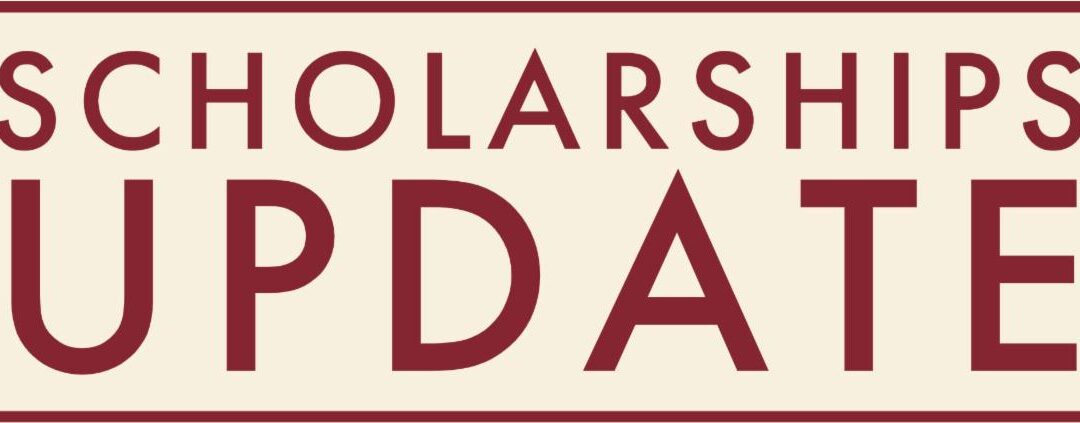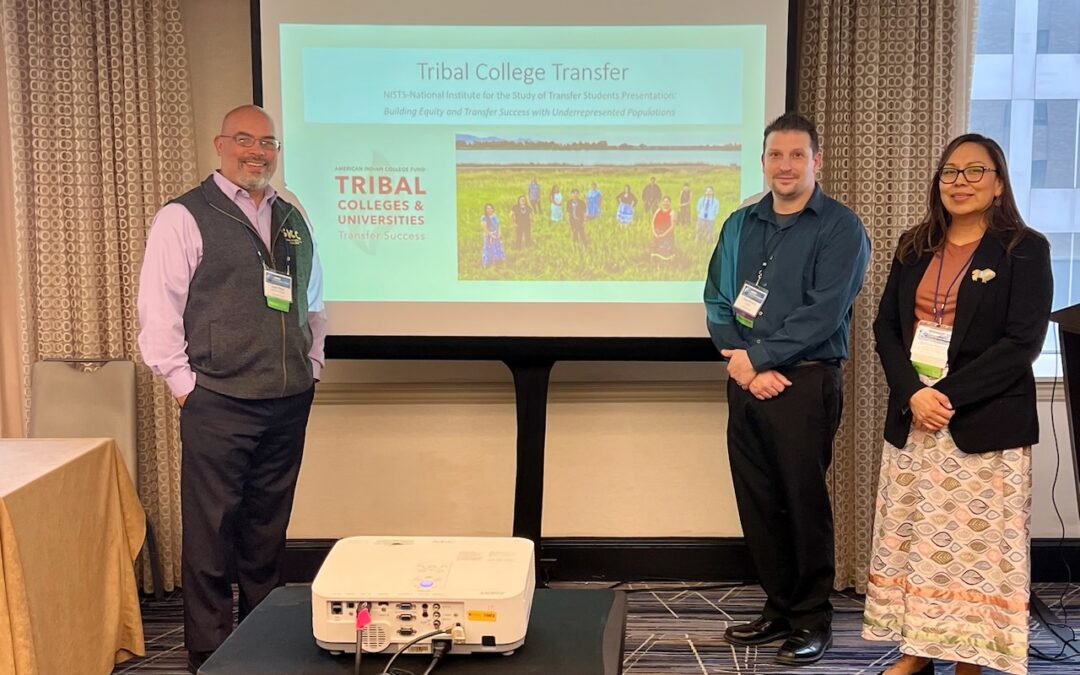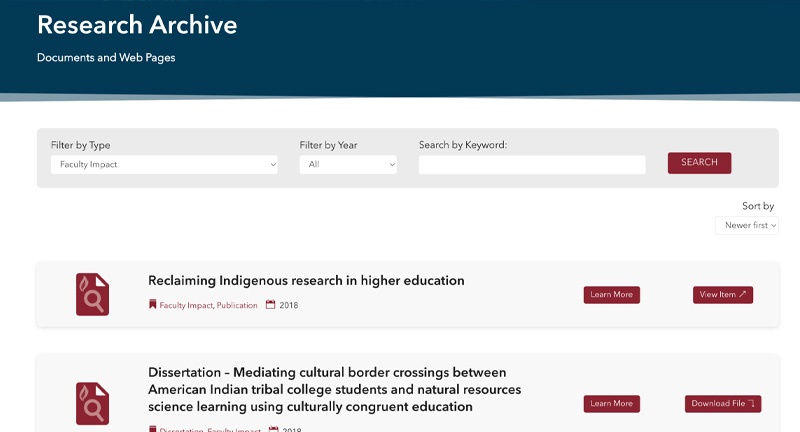United Health Foundation Provides $50,000 Grant to American Indian College Fund
March 31, 2011
Grant funds scholarships for American Indian college students committed to improving their communities’ health and well-being
For the fourth year in a row, United Health Foundation has granted the American Indian College Fund $50,000 to fund scholarships through the United Health Foundation Tribal Scholars Program.
The United Health Foundation Tribal Scholars Program awards $5,000 scholarships to American Indian students enrolled at Arizona’s state universities and tribal colleges who demonstrate a desire and commitment to improving the health and well-being of their communities.
To qualify, applicants must have a GPA of at least 3.0, be majoring in a health-related field, have interest in working in communities with need, and be attending one of the following institutions: Northern Arizona University, Arizona State University, University of Arizona, Tohono O’odham Community College, or Diné College.
More information about the scholarships and qualifications, as well as applications, is available online at aicf.nmcstaging.com. The deadline to apply for scholarships is May 31, 2011.
The United Health Foundation Tribal Scholars Program is designed to increase culturally competent health care delivery, close the health disparities gap and improve health outcomes over the long term.
“Our goal through the Diverse Scholars Program is to support outstanding students whom we believe will be an integral part of the future of our nation’s health care system and a health care workforce that reflects our country’s rich diversity,” said United Health Foundation President Kate Rubin. “Helping to support and develop these diverse, future health care leaders is one way that United Health Foundation works to improve our communities’, and our nation’s, health and well-being.”
“United Health Foundation is helping to provide access to higher education for Natives who are committed to improving the health of their communities. We are excited and humbled that they have continued to show a strong passion over four years for helping talented Native students to pursue health care careers. Native communities experience disproportionate inequities with regard to health, and these students will graduate and go on to care for the well-being of their communities,” said Richard B. Williams, President and CEO of the American Indian College Fund.
Three scholarship recipients will be selected to attend the third-annual United Health Foundation Diverse Scholars Forum in Washington, D.C., June 21-23. The Forum will recognize and celebrate the scholars and inspire them to work toward strengthening the nation’s health care system. This year’s event will provide an opportunity for the talented, young future health care professionals to participate in health care discussions with leading health care policy experts and meet with members of Congress.
About the United Health Foundation
Guided by a passion to help people live healthier lives, United Health Foundation provides helpful information to support decisions that lead to better health outcomes and healthier communities. The Foundation also supports activities that expand access to quality health care services for those in challenging circumstances and partners with others to improve the well-being of communities. Since established by UnitedHealth Group [NYSE: UNH] in 1999 as a not-for-profit, private foundation, the Foundation has committed more than $187 million to improve health and health care. For more information, visit www.unitedhealthfoundation.org.









